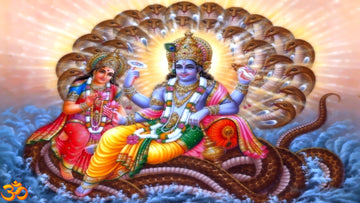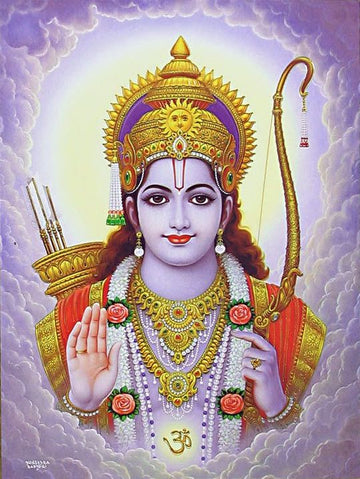
Hindu Months and their importance – Part I
In Hinduism, the lunar calendar is used to determine important festivals, auspicious dates, and other significant events. The Hindu calendar is based on the cycles of the moon and is divided into 12 months, each with its unique significance and importance. Here are some reasons why Hindu months are important:
- Spiritual Significance: Each month in the Hindu calendar has a spiritual significance attached to it. For example, the month of Chaitra (March-April) is considered to be the month of new beginnings and the start of the Hindu New Year. The month of Kartik (October-November) is considered to be a month of devotion and is associated with Lord Shiva.
Festivals and Celebrations: The Hindu calendar is filled with numerous festivals and celebrations, and each month is associated with at least one major festival.
Astrological Significance: The Hindu calendar is also based on the positions of the sun, moon, and planets. Each month is associated with a particular zodiac sign, which has its unique astrological significance.
Auspicious Dates: The Hindu calendar is also used to determine auspicious dates for important events such as weddings, housewarming ceremonies, and other rituals. The dates are chosen based on the positions of the planets and are believed to bring good luck and prosperity.
In summary, the Hindu months are important because they help to determine important dates for festivals, celebrations, and other events. They also have spiritual and astrological significance and are used to determine auspicious dates for important events in people's lives.
1. Chaitra:
Chaitra is the first month in the Hindu calendar and falls between mid-March and mid-April. It is a significant month in Hinduism for several reasons. Here are some of the reasons why Chaitra month is important:
Hindu New Year: The first day of Chaitra is celebrated as the Hindu New Year, which is known as Gudi Padwa in Maharashtra, Ugadi in Andhra Pradesh and Telangana, and Navreh in Kashmir. It marks the beginning of a new year and is considered an auspicious time for new beginnings.
Spring Season: Chaitra marks the beginning of the spring season in India. This season is associated with growth, new life, and fertility. It is considered a time of joy and celebration, and many festivals are celebrated during this time.
Navratri: The Navratri festival, which means "nine nights," is celebrated during Chaitra and is dedicated to the worship of Goddess Durga. It is believed that during these nine days, Goddess Durga manifests herself in nine different forms, and each form has its unique significance.
Ram Navami: The birthday of Lord Rama, one of the most revered deities in Hinduism, is celebrated on the ninth day of Chaitra. This day is known as Ram Navami and is considered one of the most auspicious days in the Hindu calendar.
Importance of the Sun: The month of Chaitra also marks the transition of the Sun into the zodiac sign of Aries. The Sun is considered the source of life and energy in Hinduism, and its transition into a new zodiac sign is believed to bring about new energy and vitality.
In summary, Chaitra month is an important month in the Hindu calendar for many reasons. It marks the beginning of the Hindu New Year, the spring season, and the Navratri festival. It is also associated with the worship of Lord Rama and the importance of the Sun in Hinduism.
2. Vaishakh:
Vaishakh is the second month in the Hindu calendar and falls between mid-April and mid-May. It is an important month in Hinduism for several reasons. Here are some of the reasons why Vaishakh month is important:
Akshaya Tritiya: The third day of Vaishakh is celebrated as Akshaya Tritiya, which is considered one of the most auspicious days in the Hindu calendar. It is believed that any new venture started on this day will be successful and bring prosperity.
Vishu: The festival of Vishu is celebrated on the first day of Vaishakh in the southern Indian state of Kerala. It is a harvest festival and marks the beginning of the new year according to the Malayalam calendar.
Importance of Agriculture: Vaishakh is a significant month for farmers in India as it marks the beginning of the agricultural season. Many rituals and ceremonies are performed to honor the land and seek blessings for a bountiful harvest.
Birth of Lord Parasurama: The sixth day of Vaishakh is celebrated as the birth anniversary of Lord Parasurama, an incarnation of Lord Vishnu. He is considered the first warrior-saint and is revered for his devotion to his father and his duty to uphold dharma.
Importance of Charity: Vaishakh is also known as the month of charity as it is believed that any good deed done during this month brings manifold blessings. Many people perform acts of charity such as donating food, clothes, and money to the needy.
In summary, Vaishakh month is an important month in the Hindu calendar for many reasons. It is associated with the auspicious day of Akshaya Tritiya, the festival of Vishu, the importance of agriculture, the birth of Lord Parasurama, and the significance of charity.
3. Jyestha:
Jyestha is the third month in the Hindu calendar and falls between mid-May and mid-June. It is an important month in Hinduism for several reasons. Here are some of the reasons why Jyestha month is important:
Snan Purnima: The full moon day in Jyestha is celebrated as Snan Purnima, which is also known as Deva Snana Purnima. It is considered an auspicious day for taking a holy bath in sacred rivers and lakes. Many people believe that taking a bath on this day washes away sins and brings good luck.
Importance of Family: Jyestha is also known as the month of family as it is believed that spending time with family and honoring parents during this month brings blessings and prosperity. Many people perform rituals and ceremonies to honor their ancestors and seek their blessings.
Lord Shiva: The month of Jyestha is associated with Lord Shiva, one of the most revered deities in Hinduism. Many people perform rituals and prayers dedicated to Lord Shiva during this month. The day of Shiva's birth anniversary, known as Shiva Jayanti, is also celebrated during Jyestha.
Solstice: The summer solstice, which marks the longest day of the year, usually falls during Jyestha. It is considered an important astronomical event in Hinduism and is associated with the worship of the sun.
Importance of Health: Jyestha is also associated with health and wellbeing. Many people perform rituals and prayers for good health and seek blessings from deities associated with health and healing.
In summary, Jyestha month is an important month in the Hindu calendar for many reasons. It is associated with the auspicious day of Snan Purnima, the importance of family, Lord Shiva, the summer solstice, and the significance of health and wellbeing.
4. Ashadh:
"Ashadh" is a month in the Hindu calendar that typically falls in June or July, depending on the lunar cycle. It is considered an important month for several reasons in Hinduism.
Agricultural significance: In many parts of India, Ashadh marks the beginning of the monsoon season, which is crucial for agriculture. Farmers perform various rituals and prayers to please the rain gods and ensure a bountiful harvest.
Religious significance: Ashadh is considered an auspicious month in Hinduism, and many important religious events take place during this time. For example, the Rath Yatra, a major Hindu festival, is celebrated in the month of Ashadh. It involves taking the idols of Lord Jagannath, Balaram, and Subhadra on a grand procession.
Spiritual significance: Ashadh is also a month of spiritual significance. It is believed that Lord Shiva, one of the most important deities in Hinduism, took the form of a wandering ascetic during this month. Devotees of Lord Shiva observe fasts and perform special prayers during this time to seek his blessings.
Overall, Ashadh is an important month in Hinduism, as it represents the beginning of a new season and the opportunity for a fresh start. It is a time to celebrate nature, spirituality, and the divine.



